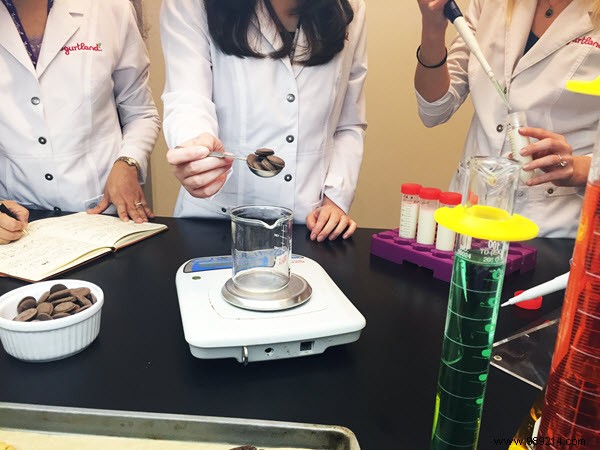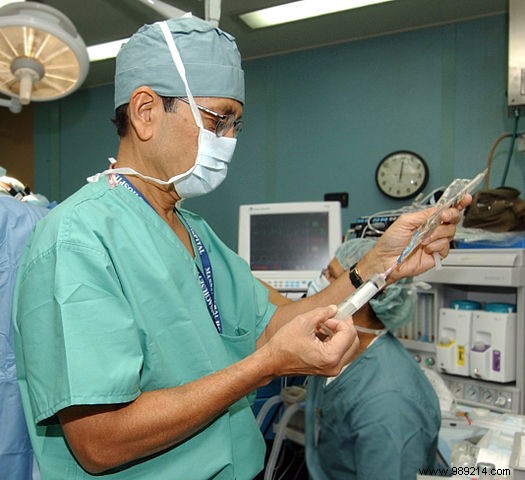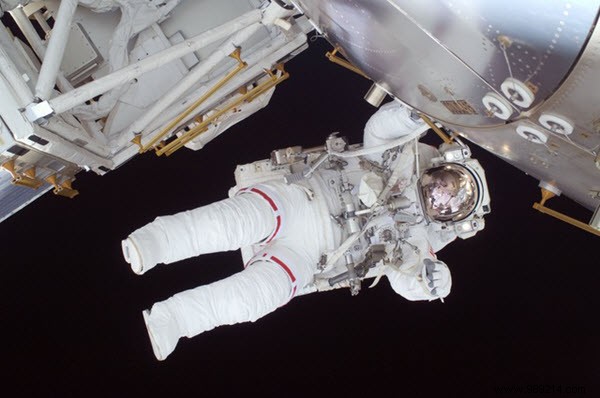When I was in high school, my guidance counselor told me I should become a postman. In the end, I was everything – from a riding instructor, librarian, salesman at Toys R Us, to a children's entertainer. I even became an ice cream alchemist.
SummaryAromatologistSnoozeahologist (professional sleeper)Movie starAnesthesiologistAstronautTo be honest, I haven't quite decided what I want to be when I grow up yet. I'm 45 and I still think growing up is overrated!
I saw an infographic from Graduation Source on some of the top careers and how to achieve them. It made me want to investigate further. Here are, in my opinion, the top five unusual jobs in the United States and what you need to do to get them.

Do you love food and have a perfect sense of taste? Perhaps you could become an aromatologist, a professional employed to taste and evaluate food. If you're interested, you can follow in the footsteps of John Harrison, a Master Ice Cream Taster for Edy's Grand Ice Cream.
John makes sure every batch of their delicious ice cream is up to snuff. He spends time working in the lab creating exciting new flavors. His work day involves up to five hours of tasting up to twenty flavors of ice cream. His work is so important that the company insures his precious taste buds for $1 million.
Aromatologists or food scientists who work for major food manufacturers can earn up to $60,000 a year, according to data from Payscale.
Of course, not all of them are delicious dishes like ice cream. Consider Philip Wells, a professional dog food taster for natural dog food maker Lily's Kitchen. Phillip says the worst part of the job is not the taste but the deadlines.

If you find it difficult to resist your bed, the role of a professional sleeper is an option for you. There are a number of medical schools that force people to sleep for medical trials and it can earn you over $10,000. The only downside is that you need to be connected to a range of medical devices to track your sleep patterns.
If you find the cables uncomfortable, there are hotels that hire people to sleep over. Take, for example, the Hotel Finn in Helsinki. They advertised for a dynamic person who would spend time sleeping in each of its 35 rooms.
As the hotel put it, “This person will share their thoughts, adventures and experiences living in the best summer spot in Helsinki.” It may seem simple, but the successful candidate must be able to speak English, Finnish and Russian.
Figures on Simply Hired suggest that a professional sleeper could earn an average of $61,586 per year. This is not a bad number for a job that requires its worker to rest.

If the idea of being on the big screen appeals to you, then you should consider getting into one of today's leading acting programs. A good example is the Julliard or Yale School of Drama.
In addition to developing your skills, you should also consider moving to one of the major cities with a booming film industry, such as New York, Los Angeles, or Chicago. Even big stars have to live close to the industry if they want to work regularly.
Additionally, you will need to join SAG-Aftra, the union that represents professional actors. Without it, you will not be able to work on union projects. You will also need a portfolio.
Be sure to research as many opportunities as possible. This can include attending open casting sessions, trying out a supporting role, or working behind the scenes.
The average salary for SAG-Aftra union members is around $53,423. With luck, you might earn more than that rate, like Jackie Chan who earned over $61 million last year.

A survey by the United States Department of Labor showed that more than half of the professionals in the highest paying jobs in the United States are in the health sector. Anesthesiologists rank first with the highest salary, averaging more than $246,000 per year.
Anesthesiologists are physicians who are responsible for patient safety before, during, and after surgery. Before receiving their license to practice, they must undergo a long educational program that can last up to twelve years.
This includes a four-year undergraduate degree, followed by at least four years in medical school, and then a four-year anesthesiology residency program. This can be followed by an additional scholarship year or specialized training.
There are over thirty thousand anesthesiologists in the United States. Over the next five years, the numbers may increase by 18%. If you are interested in the position, study hard today. This could be your career for the next few years.

The stars and the sky do not fascinate everyone. In addition, not everyone has the desire to leave the planet to explore it.
This is what makes Clayton C. Anderson different from most people. Clayton was an astronaut and former resident of the International Space Station for 152 days. In his book, “An Ordinary Astronaut,” he explains that when he started out as an astronaut candidate, he earned $90,000. When he retired, he was earning $150,000.

Despite the numbers, being an astronaut is not always about money. As British astronaut Tim Peake said of space travel,"Living and working on the International Space Station is the best place you could be as a professional." em>
So how do you become an astronaut? Basic NASA requirements involve:
Applying as an astronaut is not as simple as being able to meet these requirements. Once you pass the primary assessment, you will need to go through a rigorous selection process and training program. After that, you will need to go through a one-week maintenance process.
If, and only if, you pass all of these criteria, you will be required to undertake a 2-year program that includes training and assessment. This includes spending time in a zero-g simulator known as a "pick up comet." It is an airplane that climbs high before free-falling. Unfortunately, not everyone can pass this test without feeling sick.
The chances of being an astronaut are somewhat slim. At the time of writing, there are no advertised astronaut positions on the NASA job site, and the last recruitment was in 2015.
However, if you persevere, you could still join the 536 people who have been in space. Study hard and call the Astronaut Screening Office at 281-483-5907 and ask if you can fly in space!